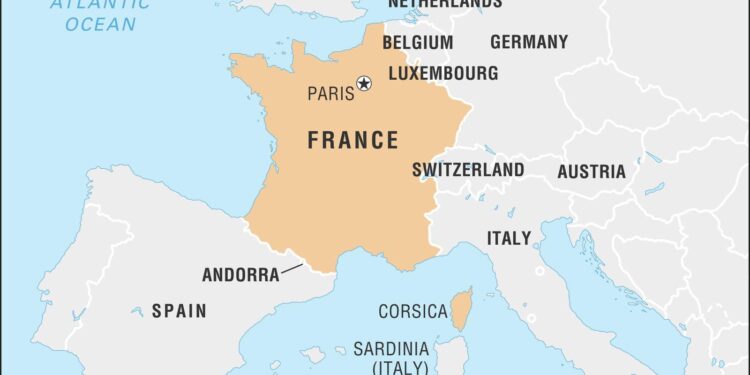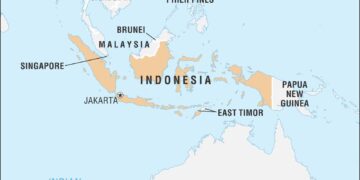Why France’s Influence Over Algeria Is Waning
The intricate relationship between France and Algeria, deeply rooted in a colonial past, is undergoing a profound transformation. Once the epicenter of French dominance in North Africa, Algeria has long grappled with the legacy of colonization—marked by conflict, resistance, and an enduring quest for self-rule. Today, however, signs point to a dramatic realignment. As Algeria strengthens its sovereignty and embraces a more diversified foreign policy, the traditional power balance favoring Paris appears increasingly unsettled. This article delves into the key drivers behind this shift: Algeria’s expanding energy sector, strategic alliances beyond Europe—particularly with China and Russia—and evolving political currents on both sides. The era when France held unquestioned sway over Algerian affairs seems poised to give way to a new geopolitical reality.
Redefining Franco-Algerian Power Relations
The historical dominance France exercised over Algeria is steadily diminishing as Algerian nationalism surges and economic independence grows stronger. No longer content with being tethered primarily to its former colonizer, Algeria is actively broadening its international partnerships while asserting control over its vast natural resources—especially hydrocarbons that fuel much of its economy.
This recalibration is evident in diplomatic shifts where Algiers takes firmer stances on regional security challenges such as migration flows across the Mediterranean and counterterrorism efforts within North Africa. Moreover, public opinion within Algeria increasingly demands recognition of colonial-era injustices alongside calls for greater accountability from French institutions.
Meanwhile, political developments in France—including debates about immigration policies and reckoning with colonial history—have complicated bilateral relations further. Together these factors underscore how Algerian agency now plays a central role in shaping future interactions rather than merely reacting under French influence.
Colonial History: Enduring Effects on Algerian Society
The century-long period during which France ruled Algeria left deep imprints that continue influencing both nations’ socio-political landscapes today. The violent struggle culminating in independence in 1962 did not erase systemic inequalities or cultural tensions born from colonization:
- Economic Imbalances: Colonial resource extraction entrenched disparities still visible across sectors like agriculture and industry.
- Cultural Identity Formation: Resistance against assimilation policies helped forge an assertive Algerian identity distinct from French narratives.
- Linguistic Heritage Conflicts: Suppression of indigenous languages during occupation fuels ongoing debates about education and cultural preservation.
In contemporary times, these legacies manifest through heightened demands for reparations linked to historical grievances as well as increased regional leadership ambitions by Algiers within Maghreb politics.
For instance:
- A More Vocal Public Sphere: Citizens actively engage through social media campaigns calling for transparency regarding colonial archives.
- An Assertive Foreign Policy: Strategic partnerships with global powers like China have expanded since 2020 amid shifting geopolitical tides.
- A Growing Role Regionally: Hosting peace talks related to Sahel security issues signals rising diplomatic clout beyond former European ties.
Constructing New Foundations for Franco-Algerian Cooperation
The changing landscape necessitates fresh approaches centered on mutual respect rather than unilateral influence if sustainable relations are desired moving forward. Both countries stand to benefit from embracing collaboration models that reflect current realities instead of outdated hierarchies.
- Energizing Economic Partnerships: Joint investments targeting renewable energy projects could diversify economies while reducing dependency on fossil fuels—a priority underscored by recent UN climate reports highlighting North Africa’s vulnerability.
- Cultural Engagement Initiatives: Expanding exchange programs focused on arts and heritage can foster empathy between populations still healing from historical wounds.
- Synchronized Security Efforts: Coordinated actions addressing terrorism threats along shared borders would enhance stability throughout the Mediterranean basin.
- Evolving Educational Collaborations: Scholarships promoting cross-cultural academic research will nurture leaders equipped to navigate complex bilateral issues sensitively.
| Area | Goal |
|---|---|
| Trade Relations | Revitalize commerce agreements emphasizing equitable benefits |
| Political Dialogue | Institutionalize regular high-level meetings addressing contentious topics transparently |
| Cultural Diplomacy | Support joint celebrations recognizing shared histories without glossing over difficulties |
| Global Forums Participation < td >Collaborate at international platforms advocating African development priorities together < / td > This framework encourages frank conversations about past wrongs while simultaneously building trust based on present-day interests—a necessary balance if reconciliation is truly sought after decades marked by mistrust. Looking Ahead: Charting Future Paths Between Paris and AlgiersThe trajectory of Franco-Algerian relations reflects broader trends reshaping post-colonial engagements worldwide: former colonies reclaim autonomy amid multipolar global influences challenging old hegemonies. For France specifically,a candid acknowledgment of its colonial history coupled with openness toward equal partnership models will be essential steps forward. If successfully navigated,a renewed relationship grounded in cooperation rather than control could emerge—one where both nations leverage their unique strengths toward common goals such as regional stability and economic prosperity. The unfolding scenario merits close observation given how it may redefine power structures not only bilaterally but also across North Africa’s geopolitical landscape—with Algeria poised increasingly as an independent actor no longer overshadowed by historic ties alone but empowered by new alliances forged through pragmatic diplomacy rather than inherited dominance. | . . .















